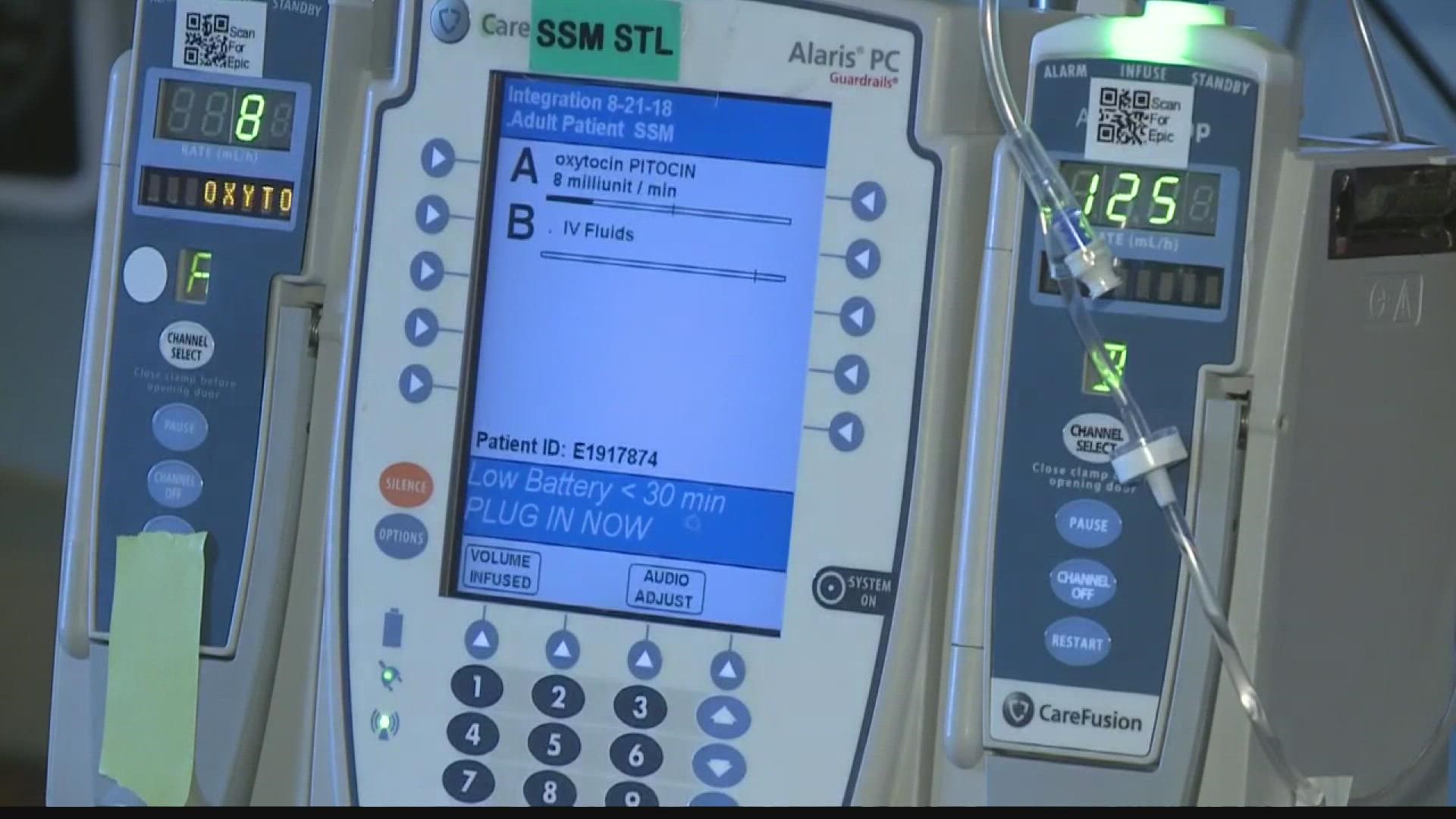ST. LOUIS — Black women living in Missouri are four times more likely to die within one year of pregnancy than white women, according to the Missouri Department of Health and Senior Services.
Last year, it published Missouri Pregnancy-Associated Mortality Review: 2018 Annual Report on behalf of the state’s Pregnancy-Associated Mortality Review (PAMR) board.
The report, which is a culmination of more than a year’s work of the PAMR, is based on the most recent data available.
With the landmark decision to overturn Roe v. Wade, many feel this disparity could get even worse.
St. Louis doula Lakisha Redditt is the board chair for the St. Louis Doula Project.
"Our Black and brown communities, our immigrant community, disabled people, trans and all of our LGBTQ folks, this is going to affect you the most," she said. "I worry so much about Black and brown communities now."
Redditt fears the ramifications this reversal could have.
"Research has already shown people who are less likely to access options for parenthood, they live in poverty longer, they have less access to childcare, we have already systems that are broken," she said.
Already, Missouri's data shows:
- Black pregnant moms are four times more likely to die than white women
- Black women living in Missouri also experience a higher rate of severe maternal morbidity (220 per 10,000 live births) than white women (89 per 10,000 live births). This is comparing Severe Maternal Morbidity (SMM), which is a term for unexpected outcomes of labor and delivery. These acute conditions may directly cause maternal deaths and/or have a significant impact on a woman’s short, or long-term health, and may include blood transfusions, renal failures, and hysterectomies.
Redditt said she believes these numbers stem from institutionalized racism and biased healthcare over the decades.
Ferguson doula Eboni Boateng with Birthing You Doula Services thinks this too. She said she thinks other key components of these numbers stem from a lack of access and culturally competent care.
"How can I have a nutritious diet for my pregnancy if I don't have access to healthy foods in my area, or those a lack of grocery stores? When we're talking about chronic stress and the impacts that racial injustices and things have on a community and an individual and how that impacts someone's body. We also can’t take out consideration how racism impact policies and procedures even in our own healthcare institutions," Boateng adds.
Both women believe these stats could increase.
"Unfortunately we will see and history has shown us, the removal of legal options for abortion doesn't necessarily stop it," Boateng said.
Redditt worries about more unsafe abortions, too.
"You're probably going to have more back-alley abortions, people taking herbs that they don't know anything about with consulting," Redditt said.
The goal now? Empowering women through education.
"Fundamentally, I believe in compassionate non-judgmental care and providing support. I'm still there to be a support person and let them know what options they have and how they can access those options," Boateng said.
Redditt said she will continue sharing information.
"Empowerment comes through giving resources and making sure people are connected," she said.
Dr. Mati Hlatshwayo Davis with the St. Louis City Health Department shared this statement in regards to helping minority communities:
The burden of the Supreme Court’s decision will fall on women across St. Louis, especially women of color and those who have already faced the greatest impact from COVID-19.
Missouri has one of the highest maternal mortality rates in the country. To turn the tide, we must get families the education, resources, and support they need to raise healthy families. This can include mental health care and pregnancy-related resources.
Public health and healthcare leaders like the Department of Health must connect residents to medical homes to better their overall health and reduce pregnancy-related mortality outcomes in the city.
As far as help, the Archdiocese also released a statement and shared in part, "We will continue providing resources for women facing unexpected and difficult pregnancies, cherishing and protecting women and their children, so that they may both develop their full potential in this world and be happy with God forever in the next."
On the day the Roe v. Wade reversal was released, 5 On Your Side spoke to the president of the Defenders of the Unborn organization.
Mary Maschmeier said the organization has been there since 1985 to assist moms.
"We help with rent, housing whatever they need. We help them with maternity clothes, electricity, whatever those needs are. We will continue to rescue those babies," Maschmeier explains.

